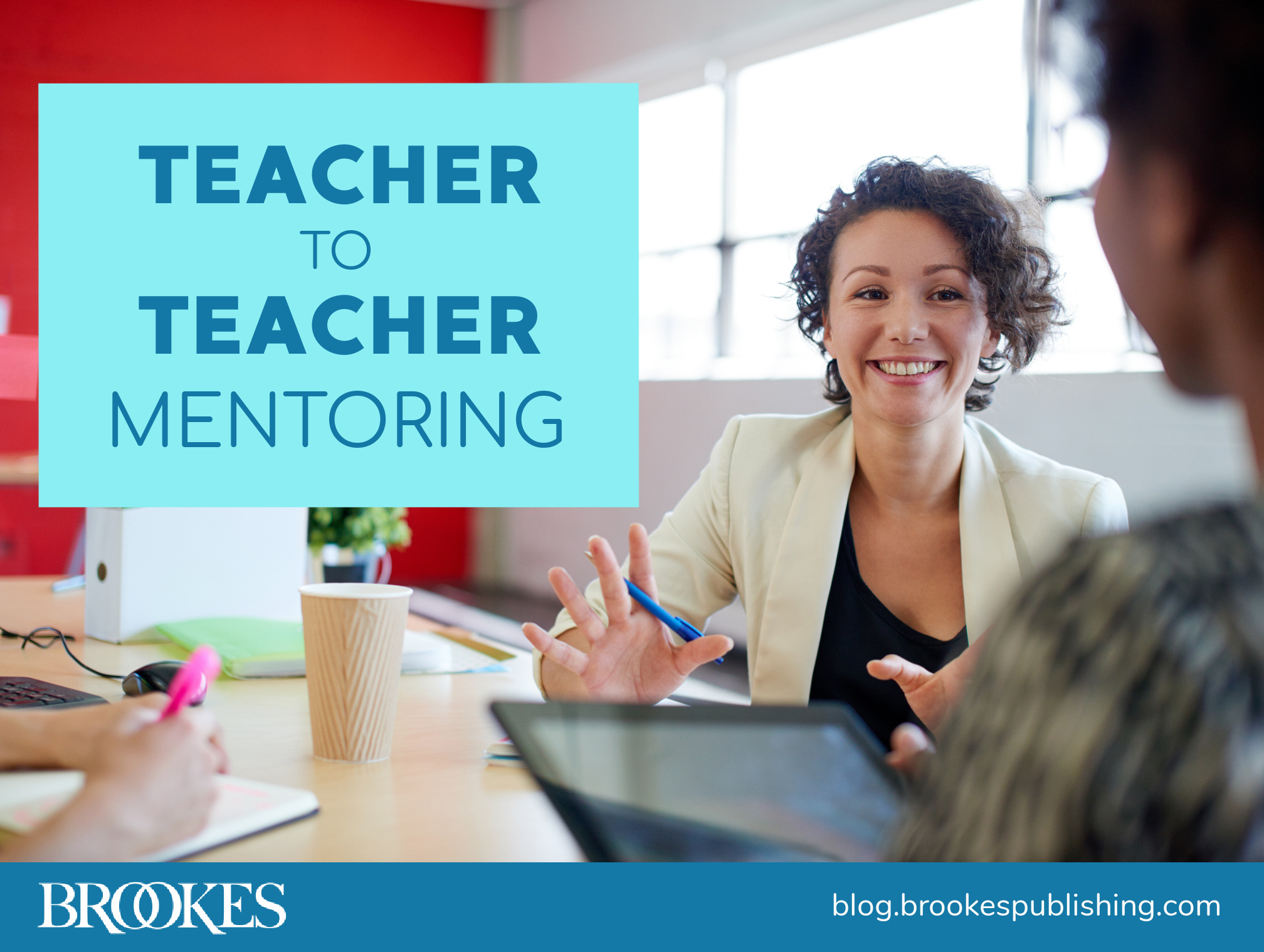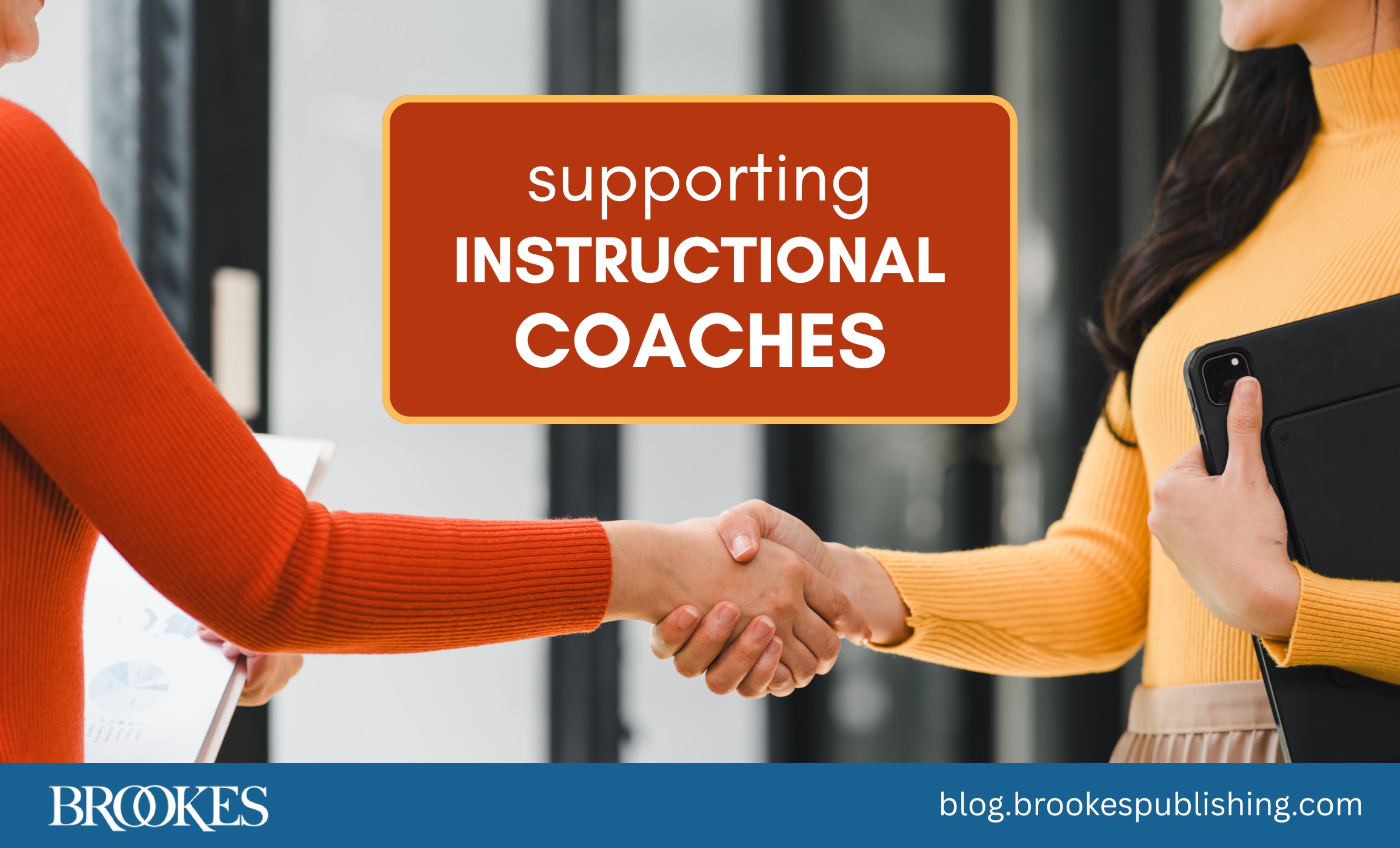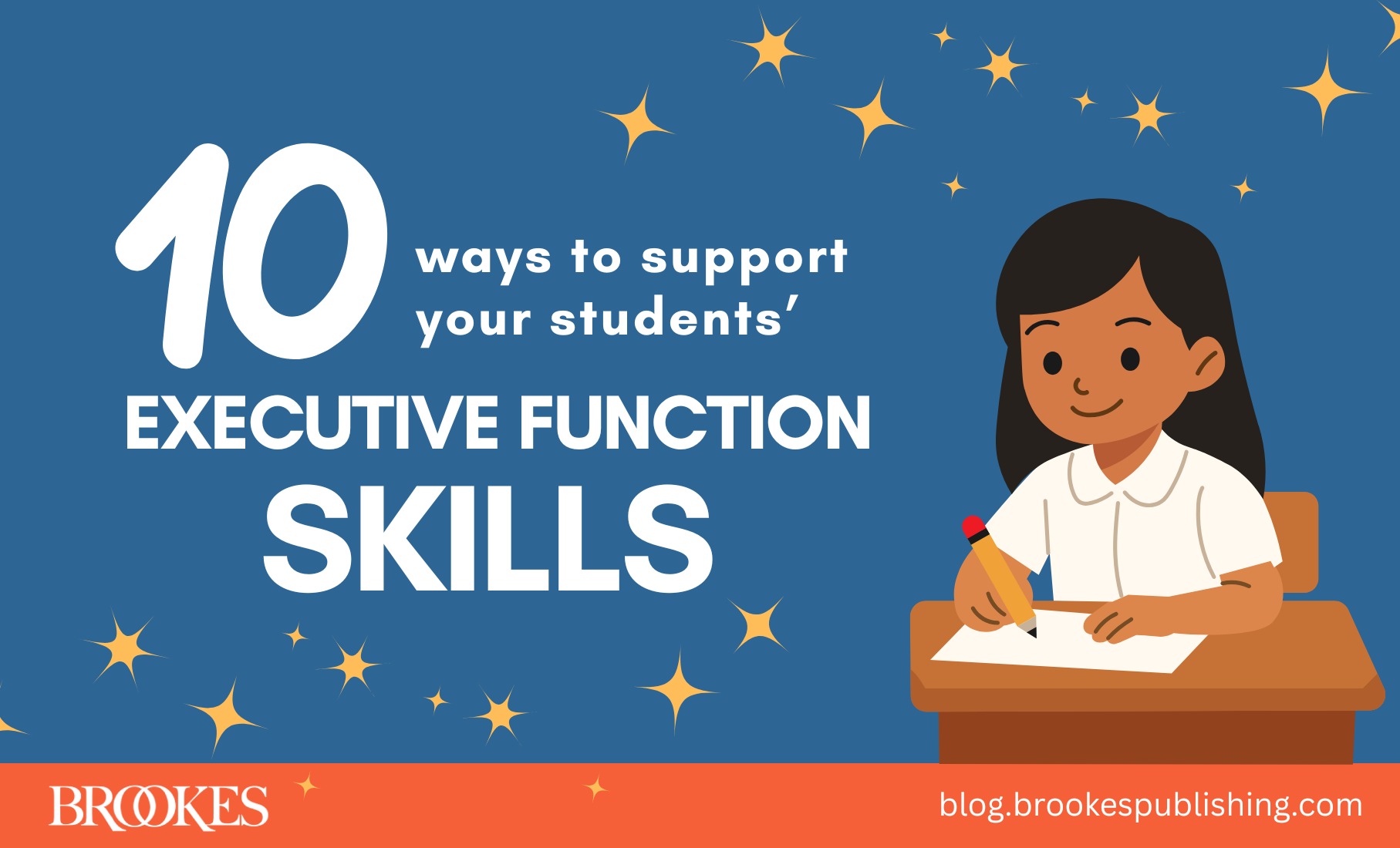9 Steps Educators Can Take to Strengthen Their Mentoring Skills
May 25, 2021
A good mentor is one of the best resources a new teacher can have during those exciting and challenging first years in the classroom. If you’re a seasoned teacher looking to enhance and practice your leadership skills, you might consider becoming a professional mentor to educators who are just beginning their careers. A one-to-one partnership with a new teacher is a great way to put your years of knowledge and experience to use for the benefit of others—and as a bonus, it can build your awareness of your own skills and strengths.
 Today’s post, excerpted and adapted from Eight Paths to Leadership by Belva C. Collins, offers nine tips for teachers who want to get started with the mentoring process. While the book is intended for special educators, these action steps can be useful for all teachers who are interested in building their mentoring skills.
Today’s post, excerpted and adapted from Eight Paths to Leadership by Belva C. Collins, offers nine tips for teachers who want to get started with the mentoring process. While the book is intended for special educators, these action steps can be useful for all teachers who are interested in building their mentoring skills.
Think about the mentoring you received as a new teacher. Who were your mentors when you were just starting out, and how were they helpful or unhelpful to you as you launched your teaching career? Consider the areas in which you needed the most support as a first-year teacher, and whether you received this support from your mentors. Are there any overall changes you would have made to the mentoring process?
Evaluate the culture of the school where you teach. Think about what new teachers in your school might experience as they get acclimated. Are the more experienced teachers and staff welcoming and collegial, and in what ways? Does your school offer resources to help new teachers learn the ropes and navigate their daily schedule? What actions could you take now to demystify your school’s culture for a teacher who has just joined the faculty?
Determine what qualities an effective mentor teacher should have. Consider contacting a teacher preparation program or your state’s official induction program for new teachers to ask about their expectations for teacher mentors. What skills would you list as most important for mentors to have, and how would you assess them?
Record, review, and reflect upon your own teaching. Video is an accessible and inexpensive way for teachers to reflect on their instruction skills and their qualities as a potential role model for new educators. Record a video of yourself as you teach and review it in private. In what areas do you believe you are a good role model? Are there areas in which you think you could improve?
Compile valuable resources. Make a list of the resources you have found to be most helpful in your own career. Include any books that have helped shaped your teaching philosophy or practice, how-to articles that you may have kept for future reference, or websites and blogs you keep bookmarked for inspiration and technical assistance. Prepare and format this list so it’s ready to share with new teachers in your school or district.
Track and record what’s worked for you. If you haven’t already, start keeping a file of evidence-based practices and a journal of effective practices that have worked well in your classroom. These would be invaluable resources to share with a teacher who’s just getting started.
Signal your willingness to help. Contact faculty in a local teacher preparation program who place student teachers, and let administrative personnel in your own school and district know that you’re interested in being assigned as a mentor to new teachers. (Administrative personnel to contact at your school might include your principal, special education director, and/or field experience coordinator.)
Think outside the classroom. Sometimes, logistics may prevent you from working with a teacher who could benefit from your mentoring. If you can’t work with a teacher in a face-to-face format, consider using technologies (online videos, chats, etc.) to interact and share suggestions across a distance or after school hours.
Communicate respect and positivity. When you’re mentoring a fellow teacher, listen, observe, and establish rapport before you offer advice. Always begin your mentoring sessions by providing positive feedback before discussing any areas where the teacher may need some support—then, make suggestions for improvement clear. To help drive future discussions, always document your mentoring sessions carefully, provide a copy of the documentation for the teacher you’re mentoring, and then follow up to see how your mentee is doing.
If you liked these tips, check out the book Eight Paths to Leadership—not only for more information on mentoring, but for in-depth guidance on seven other leadership roles that special education teachers can take on in their schools.
 Eight Paths to Leadership
Eight Paths to Leadership
A Guide for Special Educators
By Belva C. Collins, Ed.D.
Author Belva Collins, a seasoned educator herself, knows that many special education teachers are called on as “leaders by default” when colleagues turn to them for expertise. In this empowering professional development resource, she shows special educators how to pursue more intentional leadership roles so they can maximize their impact in preK–12 schools. Preservice and in-service teachers will discover eight different paths they can follow to become leaders, including effecting schoolwide change, conducting professional development, working with families, and advocating for students.




Write a Comment
Your email address will not be published. Required fields are marked *
Post a Comment